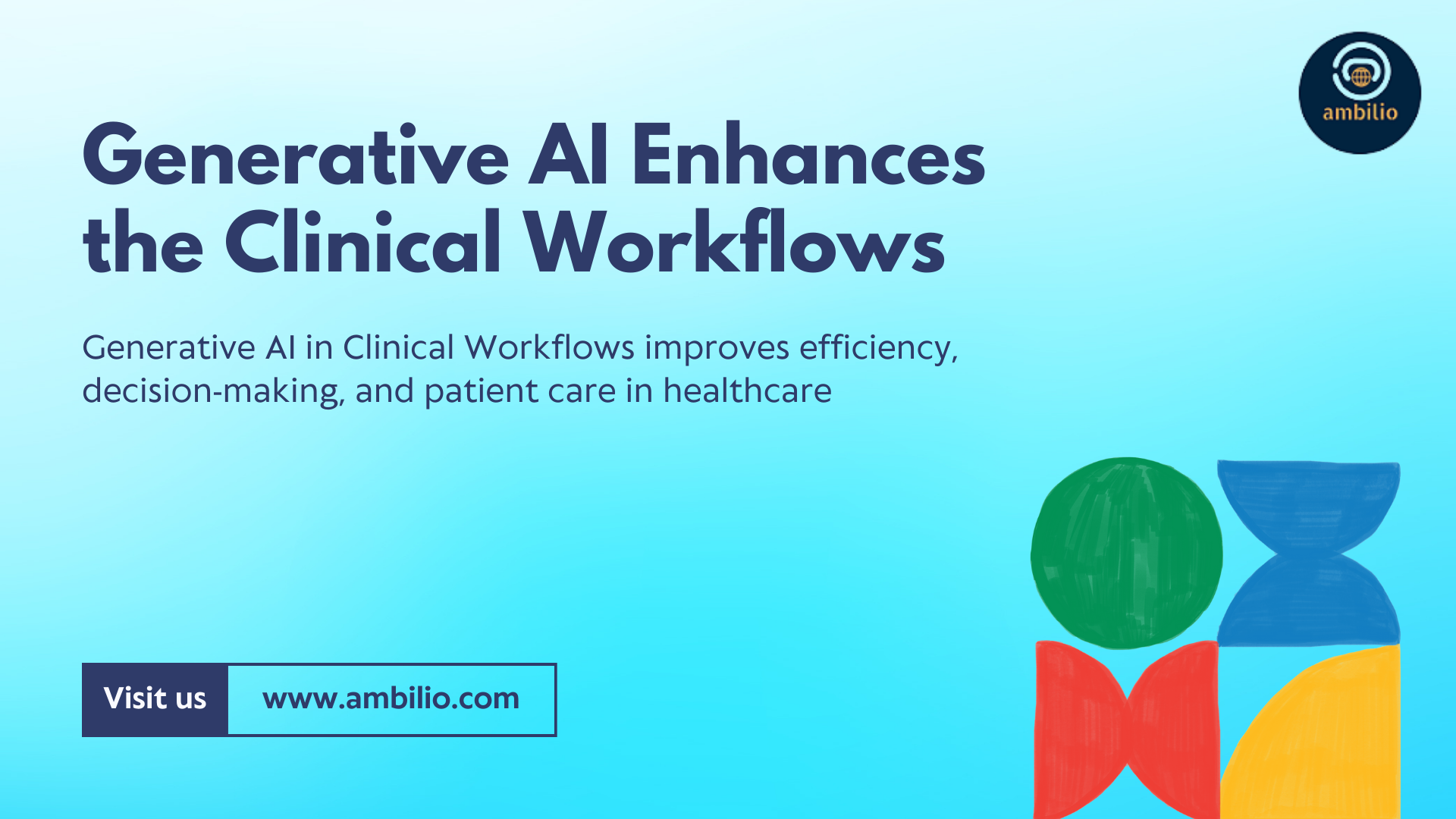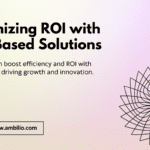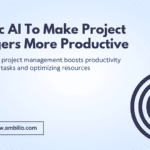The healthcare industry is undergoing a significant transformation, with new technologies playing a pivotal role in improving patient care, operational efficiency, and overall outcomes. Among these technologies, Generative AI is emerging as a game-changer, particularly in enhancing clinical workflows. Clinical workflows encompass the series of tasks and processes that healthcare professionals follow to deliver patient care, and generative AI has the potential to revolutionize these workflows in ways that were previously unimaginable. This article explores the intricacies of clinical workflows, the challenges they present, and how generative AI is being applied to address these challenges and bring transformative results to healthcare.
Understanding Clinical Workflows and Their Challenges
Clinical workflows refer to the structured processes that healthcare professionals follow from the moment a patient enters the healthcare system until they leave. These workflows include various stages such as patient intake, diagnosis, treatment, documentation, and follow-up care. Each stage involves multiple tasks and interactions between healthcare providers, patients, and administrative staff. Effective clinical workflows are essential for ensuring that patients receive timely, accurate, and high-quality care.
However, clinical workflows are often fraught with challenges that can hinder the delivery of optimal care:
1. Complexity and Fragmentation
Clinical workflows are inherently complex, involving multiple stakeholders, departments, and systems. The fragmentation of these processes can lead to inefficiencies, miscommunication, and delays in patient care. For example, the transfer of patient information between departments may be slow or prone to errors, leading to delays in diagnosis or treatment.
2. Time-Consuming Administrative Tasks
Healthcare professionals often spend a significant amount of time on administrative tasks such as documentation, scribing, and data entry. These tasks, while necessary, can be time-consuming and divert attention away from direct patient care. The burden of administrative work can lead to burnout among healthcare providers and reduce the overall efficiency of the healthcare system.
3. Data Overload
Healthcare generates vast amounts of data daily, including patient records, test results, imaging studies, and more. Managing and analyzing this data to extract meaningful insights is a significant challenge. The sheer volume of data can overwhelm healthcare providers, making it difficult to identify relevant information and make informed decisions in a timely manner.
4. Limited Patient Engagement
Effective patient engagement is critical for ensuring adherence to treatment plans and improving health outcomes. However, traditional clinical workflows may not always prioritize patient communication and education, leading to gaps in understanding and compliance. Patients may feel disconnected from their care, resulting in lower satisfaction and poorer health outcomes.
5. Predictive and Preventive Care Challenges
The ability to predict patient needs and prevent potential health issues is an essential aspect of modern healthcare. However, traditional clinical workflows may not be equipped with the tools and data analytics capabilities required to perform accurate predictive analysis. This limitation can result in reactive rather than proactive care, with healthcare providers addressing issues only after they arise.
How Generative AI Can Transform Clinical Workflows
Generative AI has the potential to address these challenges and transform clinical workflows by automating tasks, enhancing decision-making, and improving patient engagement. Here’s how generative AI can be applied in clinical settings:
1. Streamlining Administrative Tasks
One of the most significant benefits of generative AI is its ability to automate time-consuming administrative tasks. AI-powered tools can handle medical documentation, scribing, and data entry, allowing healthcare providers to focus more on patient care. For example, AI can transcribe patient-provider interactions in real-time, summarize clinical notes, and generate prescriptions. This automation reduces the administrative burden on healthcare professionals, leading to increased efficiency and reduced burnout.
2. Enhancing Clinical Decision Support
Generative AI can play a critical role in clinical decision support by analyzing large datasets and providing real-time insights to healthcare providers. By leveraging AI, clinicians can access potential diagnoses, treatment options, and predictive analytics that are tailored to individual patient profiles. This capability not only supports clinicians in making informed decisions but also helps personalize patient care, leading to better health outcomes. For instance, AI can analyze a patient’s medical history, current symptoms, and genetic information to suggest a treatment plan that is most likely to succeed.
3. Improving Data Management and Analysis
The challenge of data overload in healthcare can be effectively addressed by generative AI. AI-driven systems can process vast amounts of medical data, identifying trends, patterns, and correlations that may not be immediately apparent to human analysts. This capability is particularly valuable in medical research, where AI can analyze genomic data to identify genetic predispositions to diseases, leading to early intervention and personalized treatment strategies. Additionally, AI can generate synthetic data to support research and clinical trials, reducing the need for extensive human subjects and accelerating the pace of scientific discovery.
4. Enhancing Patient Engagement and Communication
Generative AI can significantly improve patient engagement by providing personalized communication and support. AI-powered chatbots and virtual assistants can interact with patients, answer their queries, provide health information, and remind them about medication schedules or follow-up appointments. These tools can also deliver tailored educational content, helping patients better understand their conditions and treatment plans. By enhancing communication and making healthcare more accessible, AI fosters greater patient adherence to treatment plans and improves overall health outcomes.
5. Enabling Predictive Analytics and Preventive Care
Predictive analytics is a powerful application of generative AI in healthcare, allowing providers to anticipate patient needs and prevent potential health issues. By analyzing historical data, AI can predict patient admissions, optimize staffing levels, and even forecast outbreaks of infectious diseases. This predictive capability enables healthcare facilities to respond proactively, ensuring that resources are allocated efficiently and that patients receive timely care. For example, AI can predict which patients are at risk of developing chronic conditions and recommend preventive measures to avoid complications.
Benefits of Integrating Generative AI in Clinical Workflows
The integration of generative AI into clinical workflows offers several key benefits:
1. Increased Efficiency
By automating routine tasks and streamlining processes, generative AI significantly increases the efficiency of clinical workflows. This efficiency allows healthcare providers to dedicate more time to direct patient care, improving the overall patient experience and outcomes.
2. Enhanced Accuracy
Generative AI can reduce human errors in documentation and data analysis, providing more accurate insights and recommendations. This accuracy leads to better-informed clinical decisions, ultimately improving patient safety and the quality of care.
3. Cost Reduction
Generative AI can lead to substantial cost savings for healthcare organizations by reducing the need for extensive administrative staff and streamlining operations. Additionally, AI-driven predictive analytics can help prevent costly medical errors and unnecessary hospital admissions.
Challenges and Considerations
While generative AI offers significant potential, its integration into clinical workflows is not without challenges:
1. Data Privacy and Security
The use of AI in healthcare raises concerns about patient privacy and data security. Healthcare organizations must ensure compliance with regulations such as HIPAA and implement robust security measures to protect sensitive patient information.
2. Bias and Fairness
AI systems can be biased if trained on unrepresentative datasets, leading to disparities in care. It is crucial for healthcare organizations to use diverse and representative data to train AI models, ensuring that AI-driven care is fair and equitable.
3. Ethical Implications
The deployment of AI in clinical decision-making raises ethical questions regarding accountability and transparency. Clear guidelines and oversight are necessary to ensure responsible and ethical use of AI technologies in healthcare.
The Future of Generative AI in Healthcare
As generative AI continues to advance, its role in clinical workflows is likely to expand. The technology has the potential to transform healthcare delivery by improving efficiency, enhancing decision-making, and personalizing patient care. However, careful consideration of ethical, privacy, and bias issues will be essential to ensure that AI-driven healthcare benefits all patients equitably. As healthcare organizations continue to embrace this technology, the successful integration of generative AI into clinical workflows will depend on ongoing research, collaboration, and thoughtful navigation of the challenges ahead.
Conclusion
Generative AI is poised to revolutionize clinical workflows, offering innovative solutions to longstanding challenges in healthcare. By automating administrative tasks, enhancing clinical decision-making, and improving patient engagement, AI has the potential to significantly improve the quality and efficiency of healthcare delivery. However, to fully realize these benefits, healthcare organizations must address the challenges associated with data privacy, bias, and ethics. As the healthcare industry continues to adopt AI technologies, the thoughtful integration of generative AI into clinical workflows will be crucial to harnessing its full potential and transforming patient care for the better.



